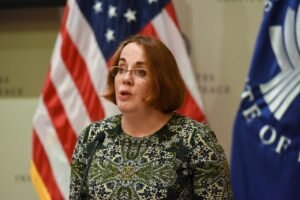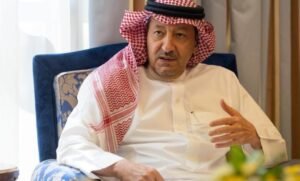Intensive Diplomatic Momentum on Sudan: Biden Administration Plays Its Last Pressure Cards on One of the Regional Crises

Sudanhorizon – Diplomatic Editor
The United States has thrown its weight behind diplomatic efforts related to the escalating humanitarian crisis in Sudan, primarily caused and exacerbated by the war ignited by the Rapid Support Forces (RSF) rebellion in mid-April of last year. The RSF subsequently reneged on commitments signed by their representatives about a month after the war began, in Jeddah, Saudi Arabia, on 11 May 2023, and later on understandings, in November of the same year. These agreements aimed at halting military escalation and evacuating RSF rebels from civilian properties they occupied and used as residences for families brought from outside Khartoum State and as weapons and equipment depots, as seen in the case of the radio and television headquarters in Omdurman.

Switzerland Instead of Jeddah
The U.S. Secretary of State announced (Tuesday) that the U.S. and Saudi Arabia would transition their mediation efforts from the “Jeddah platform,” which facilitated understanding between the Sudanese Armed Forces and RSF rebels, to Geneva. Starting in mid-August, this move will expand the base of “facilitators and observers” to include the African Union, the Intergovernmental Authority on Development (IGAD), the European Union, Egypt, the UAE, and possibly other countries.
Rebel Welcome
Before the ink on the American statement dried, which had been preceded by leaks in several global newspapers, notably Foreign Policy, a post attributed to the RSF leader on the X platform (formerly Twitter) welcomed the American invitation and expressed readiness to engage in humanitarian and military negotiations with full seriousness. A diplomatic source who spoke to Sudanhorizon interpreted this prompt welcome and “enthusiasm” as pre-agreed between the RSF rebels and their external sponsors. According to the source, this aims to achieve two main objectives simultaneously: first, to portray the Sudanese Armed Forces as obstinate and indifferent to people’s suffering if they refuse or express reservations about participating in the planned Geneva negotiations, thereby exposing the current Sudanese authority to potential international sanctions. Second, to ease the embarrassment of accepting the UAE’s participation among the “facilitators” group, after the Sudanese authority had previously conditioned that the UAE cease its support for the rebels, support that has taken various forms and been documented by UN experts monitoring the implementation of UN Security Council Resolution 1591 regarding the flow of arms to Darfur, as well as some international media outlets.

Intense Diplomatic Activity
Last week, the Saudi Deputy Foreign Minister’s plane landed in Port Sudan, where the minister conveyed a message from the Saudi leadership to the Chairman of the Transitional Sovereignty Council. Diplomatic sources suggested that the Saudi leadership informed its Sudanese counterpart about the decision to move the Jeddah platform negotiations to Geneva, while the issues to be discussed would remain the same, as confirmed unequivocally by the U.S. Secretary of State’s statement yesterday.
The day after the Saudi Deputy Foreign Minister’s visit, Ethiopian Prime Minister Abiy Ahmed’s plane landed at Port Sudan Airport. President Al-Burhan accompanied his guest alone in his car from the airport to the guesthouse and meeting venue (about 22 kilometres). Whatever they wanted to discuss seemed covered during this distance, and the rest of the visit was “protocol.”
Soon after, the Sudanese public was surprised by news of a phone call between the Sudanese Sovereignty Council Chairman and the UAE President, Sheikh Mohammed bin Zayed. It was said to be one of the outcomes of Abiy Ahmed’s visit to Port Sudan, with the Ethiopian Prime Minister facilitating its arrangement.
Yesterday (Tuesday), Sudanese and Egyptian delegations led by their foreign ministers held meetings in Cairo to discuss several issues of mutual interest. Two weeks earlier, the Egyptian side concluded a successful meeting of several Sudanese political factions aimed at preparing the ground for comprehensive Sudanese-Sudanese dialogue.
Today (Wednesday), a Qatari plane landed at Port Sudan Airport carrying two deputies of the Qatari Foreign Minister, Minister of State Sultan bin Saad Al-Muraikhi and Minister of State Lulwa Al-Khater. Among other things, they brought a verbal message from Emir Tamim bin Hamad, which they conveyed to President Al-Burhan. It’s important to note that the Doha Conflict Resolution Centre concluded a major conference in the first week of July, discussing the Sudanese crisis from various angles through scientific papers presented and discussed by numerous Sudanese and international experts.
High-ranking diplomatic sources told Sudanhorizon that a senior official from the U.S. State Department, possibly Assistant Secretary Molly Phee, is expected to visit Port Sudan in the coming days along with U.S. Special Envoy to Sudan Tom Perriello. They are likely to explain to the Chairman of the Transitional Sovereignty Council the reasons for moving the Jeddah negotiations to Geneva. The sources also suggested that the U.S. officials would convey a clear message to the military leadership, combining incentives and warnings, to encourage the Sudanese Armed Forces to participate in the Geneva negotiations positively. Having failed to resolve any of the ongoing wars in the region, the Biden administration is seeking any measure of success in Geneva before turning its focus inward for electoral reasons.
Presidential Diplomacy A few days ago, the newspaper “Al-Sudani” exclusively reported that a planned tripartite summit in Addis Ababa would bring together the Chairman of the Sudanese Sovereignty Council, the President of the UAE, and their Ethiopian host. The summit aims to lay the foundation for normalising relations between the leaders and their countries. Meanwhile, the “Sudanhorizon” news site reported from diplomatic sources that there are discreet movements between Cairo and Port Sudan aimed at halting the rapid deterioration of relations between Khartoum and Abu Dhabi. It is not unlikely that President El-Sisi might visit Port Sudan, as Ethiopian Prime Minister Abiy Ahmed did, for mediation purposes.
Diplomatic sources who spoke to Sudanhorizon placed the matter in a broader context, indicating that high-level coordination is underway between the four capitals, aiming to “reset” problems and achieve a comprehensive reconciliation. This reconciliation would not only cover relations between Abu Dhabi and Port Sudan but also extend to a reconciliation between Addis Ababa and Cairo. President Al-Burhan is personally leading mediation efforts between Abiy Ahmed and President El-Sisi, while El-Sisi is facilitating reconciliation between the UAE and Sudan. The sources did not rule out the possibility that the three presidents might move from Addis Ababa to Cairo, which is likely to have prepared to host a quadripartite summit in August, possibly before the Geneva negotiations, bringing together Abiy Ahmed, Al-Burhan, Mohammed bin Zayed, hosted by President El-Sisi to close the chapter on disputes among the four countries.
Shortlink: https://sudanhorizon.com/?p=555

